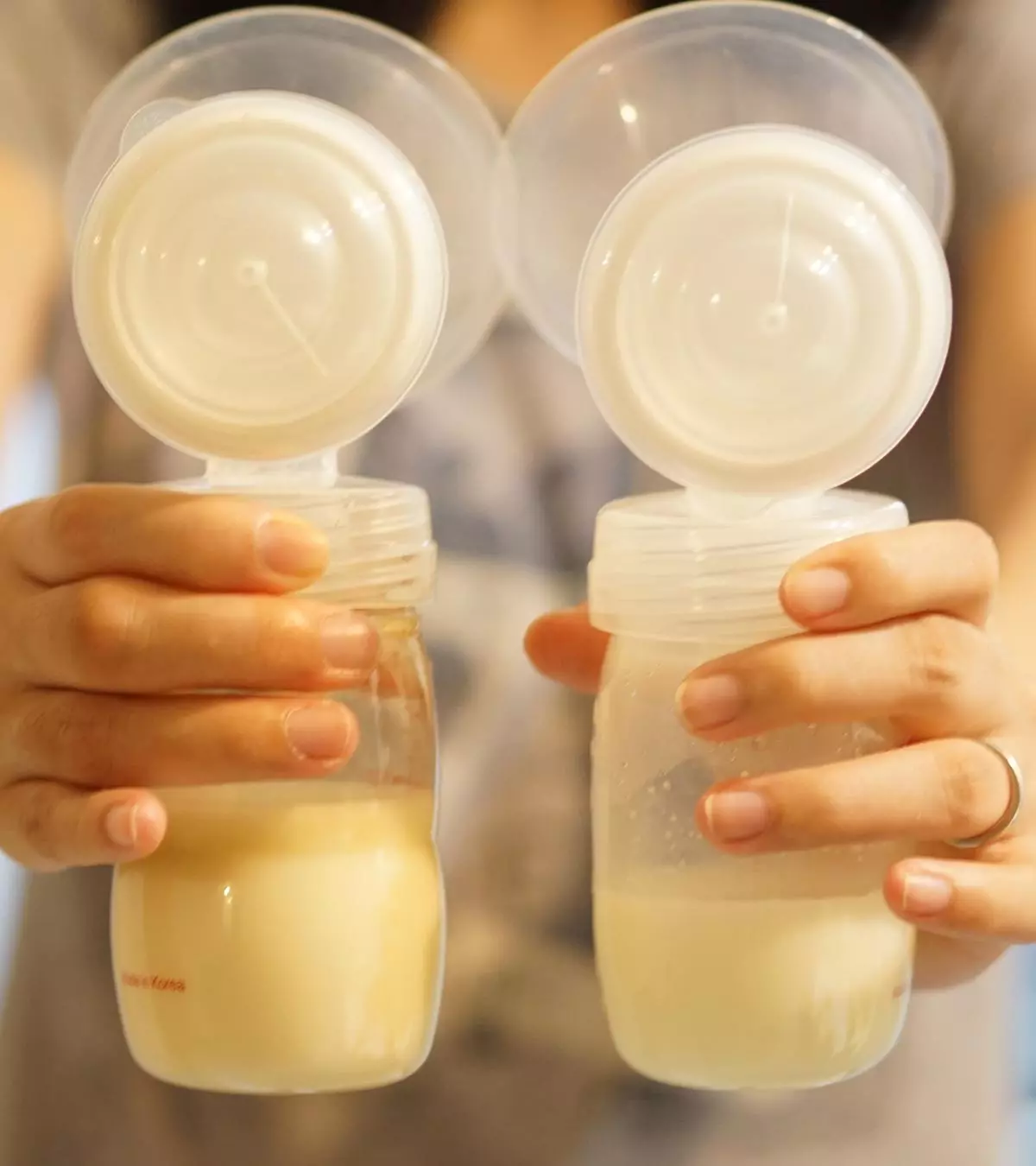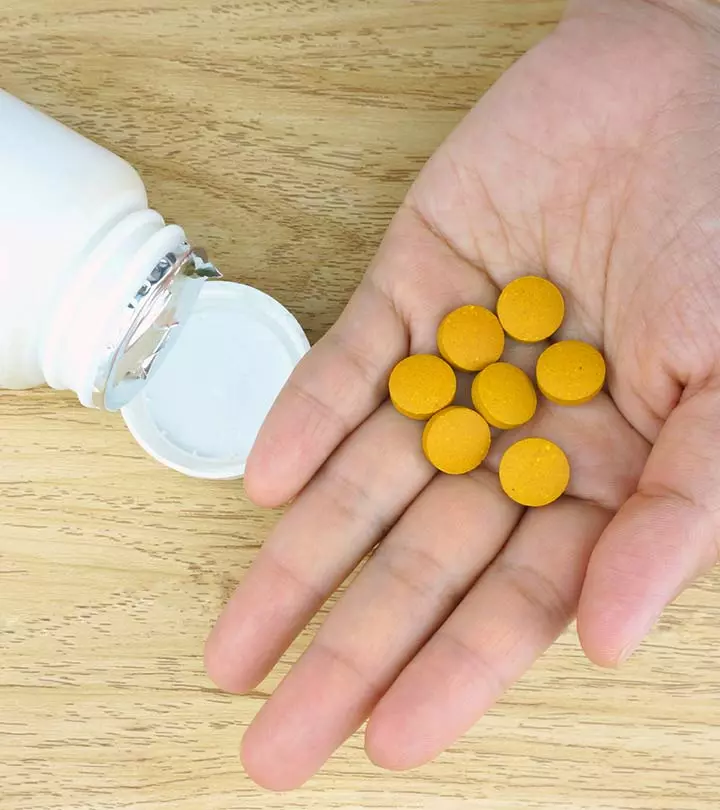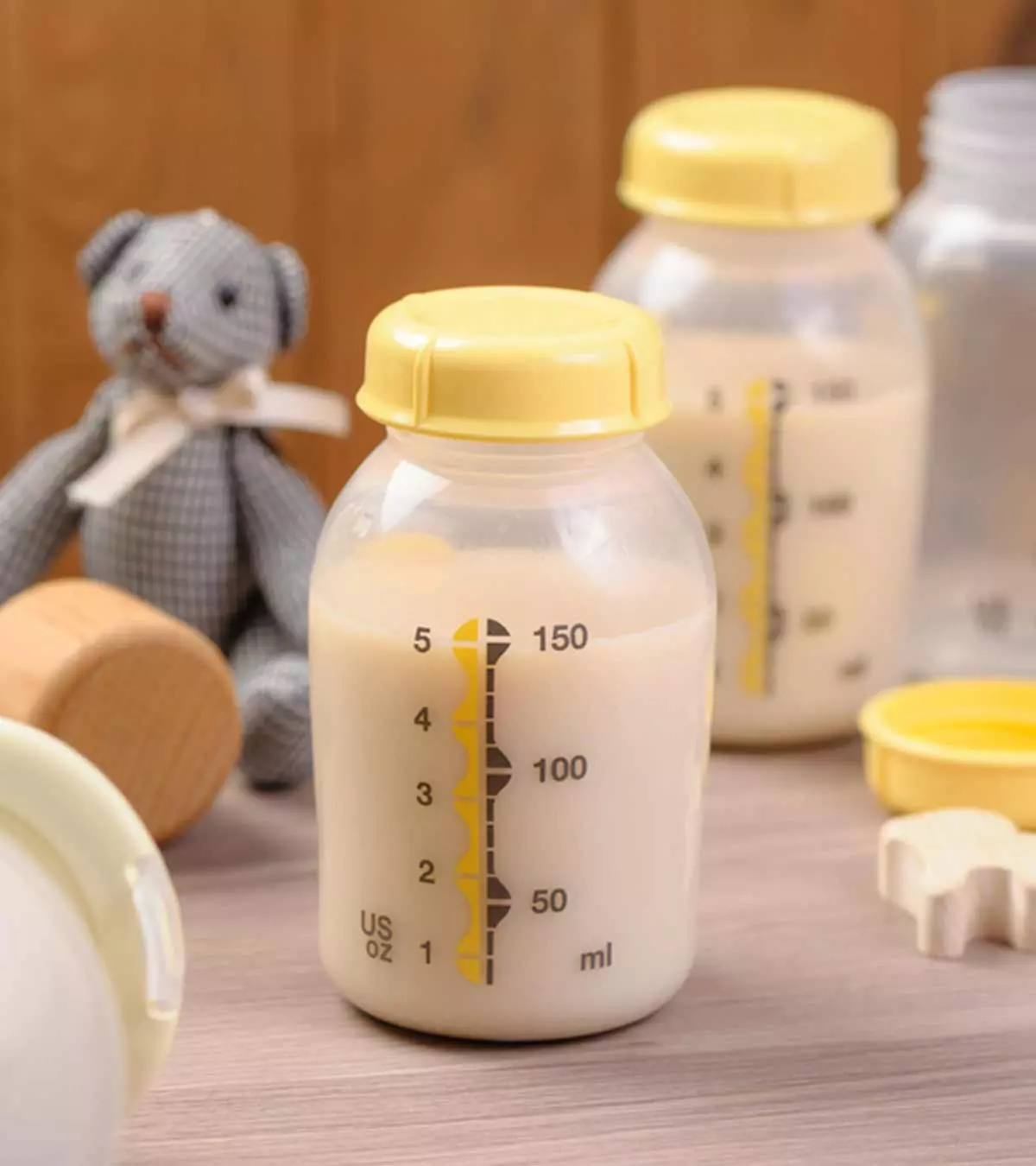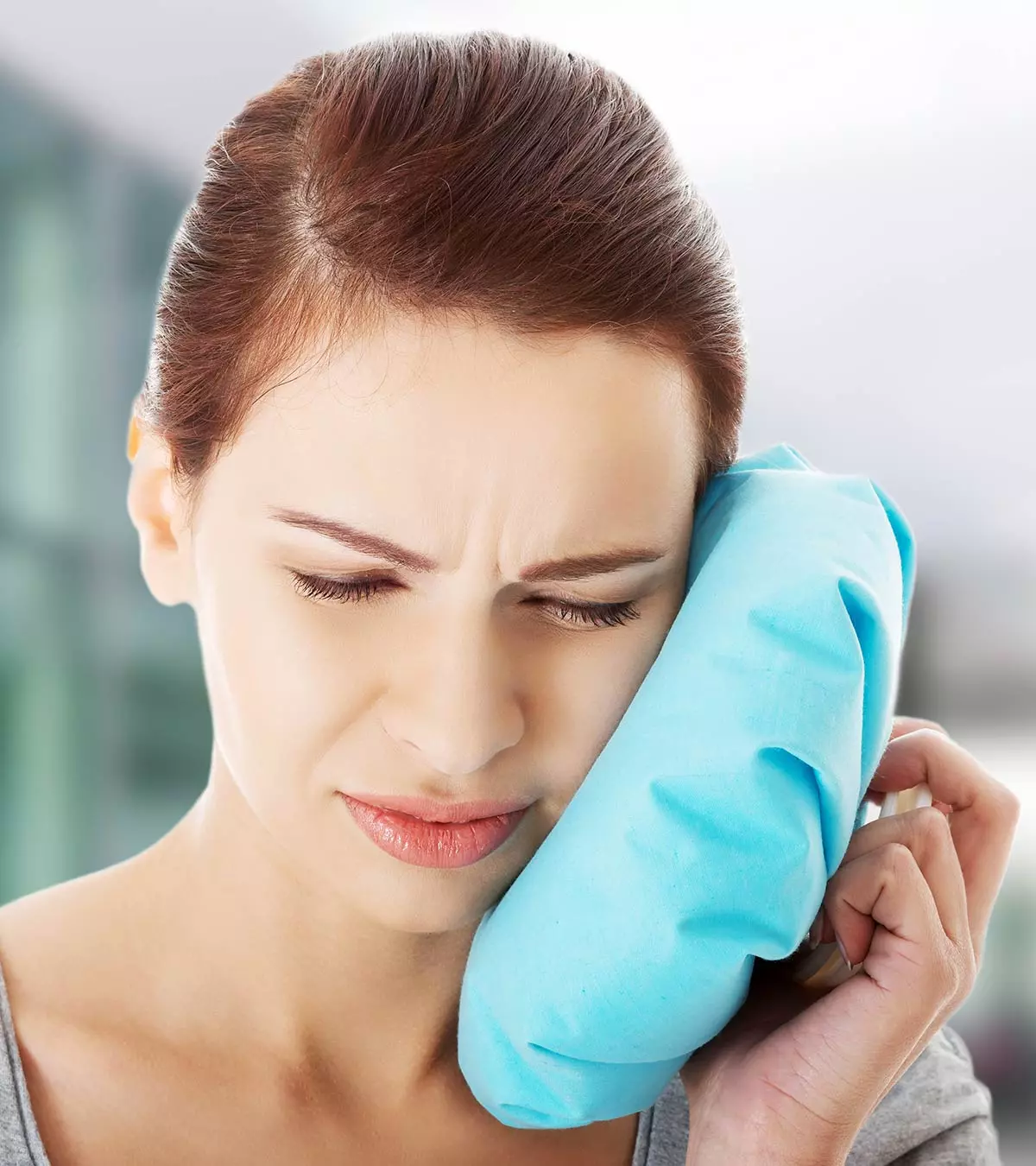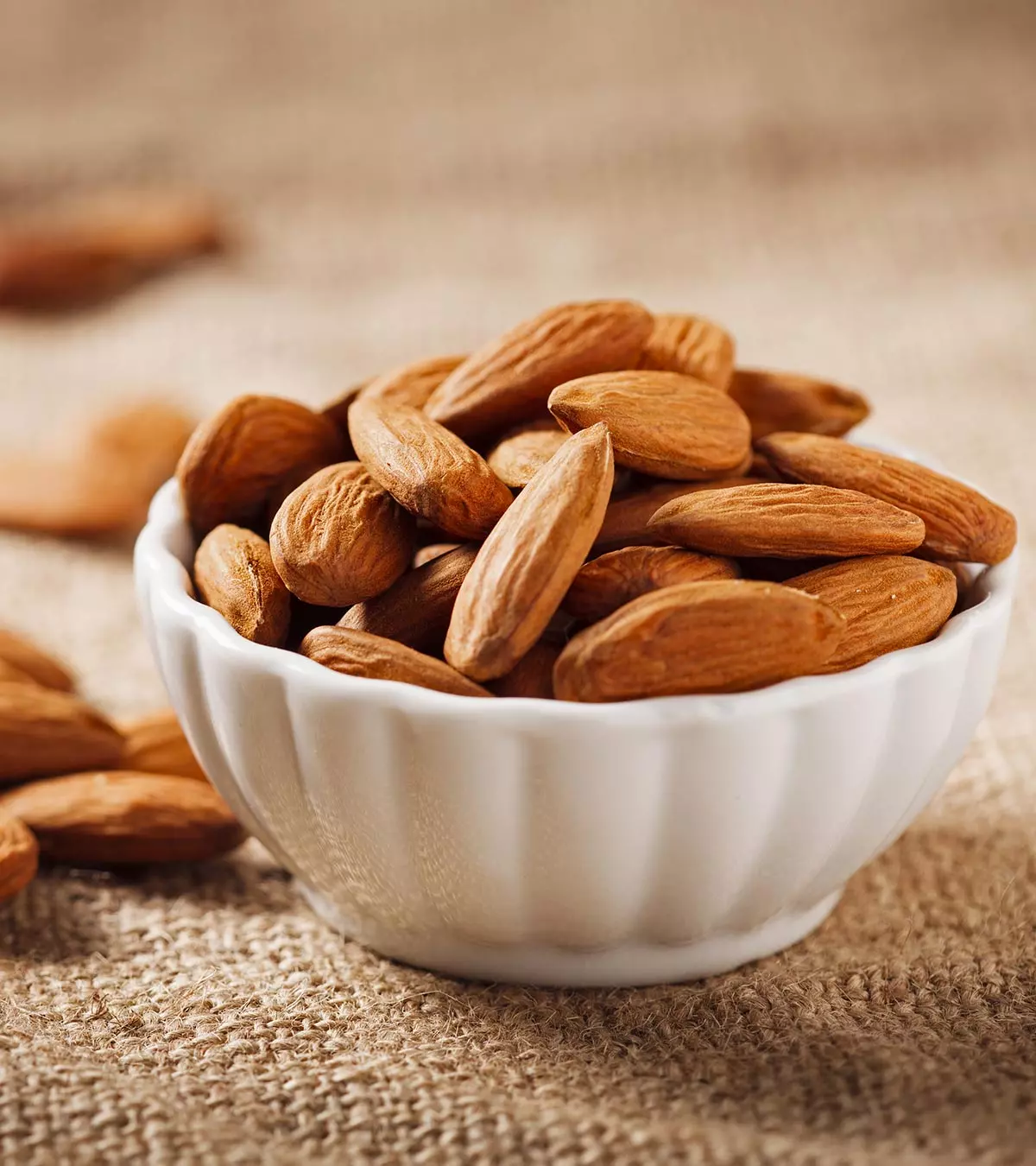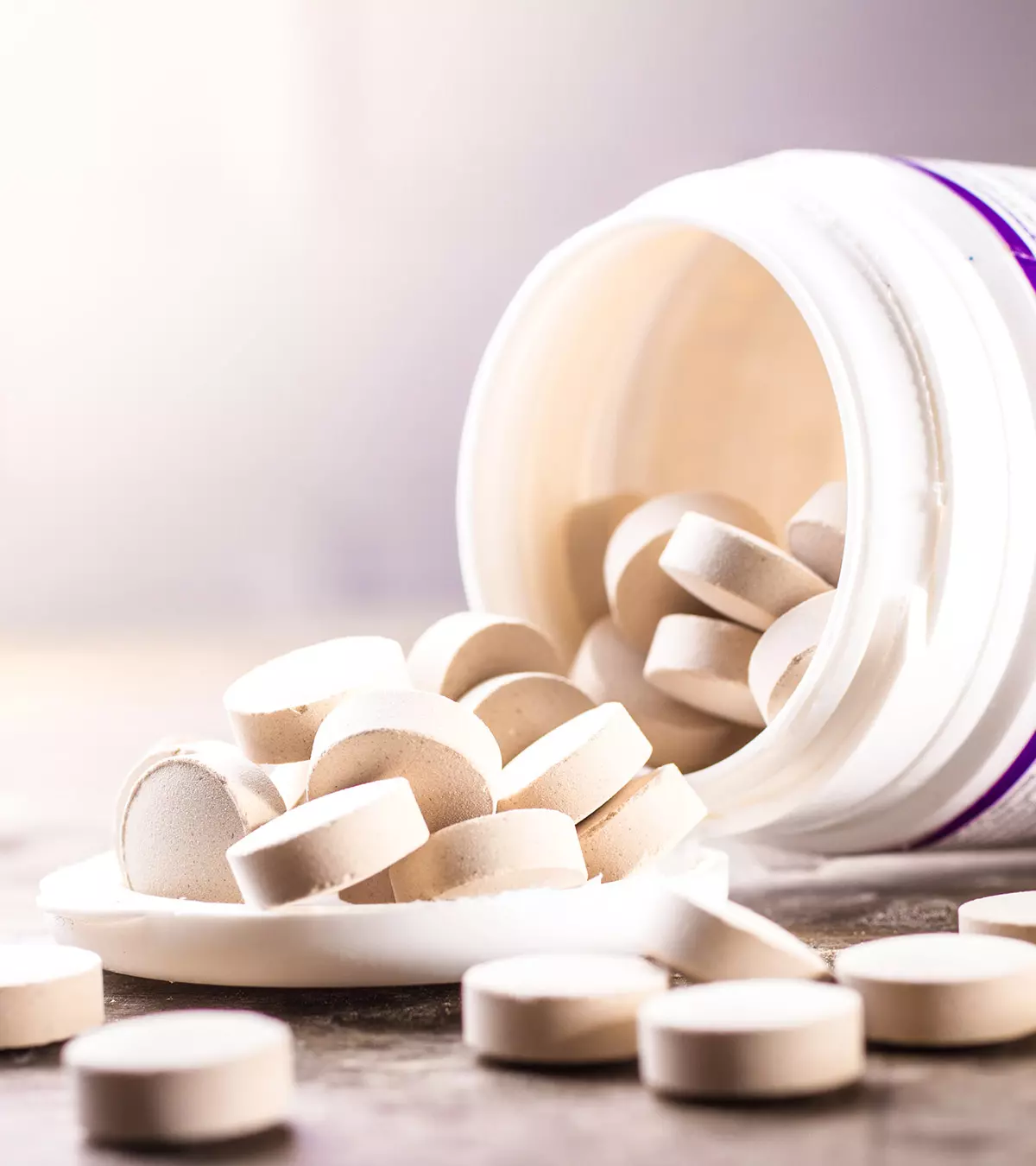
Image: Shutterstock
Breast milk is the main source of nourishment for babies, and it supplies all the essential nutrients to a baby for healthy growth and development. Hence, besides eating a well-balanced diet, several mothers may consider using brewer’s yeast when breastfeeding.
However, while anecdotal evidence suggests that brewer’s yeast can help improve breast milk production, is its use during lactation safe for the nursing mother and her baby? Continue reading as we tell you more about brewer’s yeast, its safety for babies and breastfeeding mothers, and its possible postpartum health benefits and side effects.
Key Pointers
- Brewer’s yeast is traditionally taken by breastfeeding mothers as a galactagogue.
- Some experts suggest taking 1-2 tablespoons (15-30 gms) of brewer’s yeast per day.
- There are several vitamins and nutrients (including B vitamins, phosphorus, chromium, selenium, and protein) in brewer’s yeast that makes it a healthy choice.
- Some women may experience adverse reactions after consuming brewer’s yeast, such as nausea, hives, itching, and stomach pain.
- Due to a lack of scientific evidence on its effects on lactation, it is advisable to consult a doctor before consuming brewer’s yeast.
What Is Brewer’s Yeast?
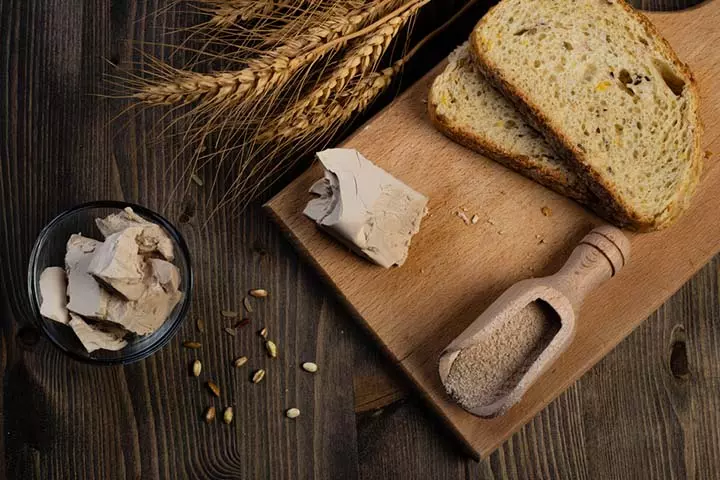
Image: Shutterstock
Brewer’s yeast is a fungus made from the one-celled Saccharomyces cerevisiae. It is predominantly used in the brewing of alcoholic beverages, and hence its name. Brewer’s yeast is also used in making bread, although it is different from baker’s yeast. Brewer’s yeast is quite popularly used as a nutritional supplement since 52% of it is protein, and is also an excellent source of B-complex vitamins (1).
Is It Safe To Take Brewer’s Yeast While Breastfeeding?

Image: Shutterstock
It is not known if brewer’s yeast is safe when you are breastfeeding since there is insufficient scientific research on it. Medical experts suggest that mothers consult a doctor before having it.
Before taking any foods that increase the breast milk (galactagogue), you should consider the reasons for doing so. Why do you feel that your breastmilk supply is not adequate? Analyze this and then speak with an IBCLC.
Does Brewer’s Yeast Help Improve Breast Milk Supply?
Probably. Brewer’s yeast has been traditionally used as a breast milk stimulant. Despite its long-standing use as a galactagogue, there is little scientific evidence to suggest that it works. A study found brewer’s yeast efficacy ambiguous, as it was with other galactagogues (2).
While the fungus’ milk-stimulant properties have been anecdotal, lactating mothers can use brewer’s yeast as a milk stimulant after doctor consultation. Do keep in mind that the effects of this yeast may vary from person to person.
What Is The Ideal Dosage Of Brewer’s Yeast During Lactation?
Health experts state that one to two tablespoons (15–30 grams) of brewer’s yeast for lactation in the form of powder a day is ideal (3). However, suggested doses may vary, and so, lactating women should consult their healthcare providers before consuming any dietary supplements.
For best results, gradually add brewer’s yeast to your diet to assess tolerance. Start with a lower dosage, increase as needed, and monitor for any side effects. If you do not see any improvement in your breast milk even after several weeks of consumption, then it is best to stop and consult a doctor.
How To Take Brewer’s Yeast When Breastfeeding?
Brewer’s yeast is available in the form of tablets and powder. You can add the recommended quantities of the powder by adding it to preparations like cookies or have it dissolved in water. There is no fixed dosage for brewer’s yeast tablets since the content of the yeast in a tablet varies, depending on the manufacturer. So the dosage can go as high as eight tablets a day.
It is best to stick to the powdered version to ensure you get the correct dosage.
 Did you know?
Did you know?What Are The Health Benefits Of Brewer’s Yeast?
Brewer’s yeast is an excellent source of vitamins and micronutrients, which eventually prevent deficiency diseases. It is also a good source of protein for those who need it in large quantities. Brewer’s yeast is known to improve some conditions like acne (1).
Individuals with diabetes may show better glucose tolerance when provided with a controlled amount of brewer’s yeast daily.
Below are the vital nutrients found in brewer’s yeast (4):
- Protein in the form of 16 types of amino acids
- Chromium
- SeleniumiEssential micronutrient that helps combat infections and is required for the bodily processes.
- Phosphorus
- All B-complex vitamins
Brewer’s yeast is often considered a nutritional supplement for vitamin B-complex and the micronutrient selenium.
Are There Any Side Effects Of Brewer’s Yeast?

Image: Shutterstock
Yes. Some individuals could display an allergic reaction to brewer’s yeast. Symptoms of an allergic reaction include nausea, vomiting, skin hives with intense itching, and abdominal pain. You may also experience side effects such as a headache, bloating of the stomach, and gassiness. Severe allergic reactions can cause anaphylactic shock, where the immune system floods the body with chemicals, causing a shock, an increase in blood pressure, and narrowing air passages (breathing becomes difficult).
Since brewer’s yeast has the potential to cause side effects, you should avoid it in some situations.
When To Avoid Brewer’s Yeast?
You must avoid having brewer’s yeast in the case of:
- History of food allergies: If you develop an allergy to any new food, then you must avoid having brewer’s yeast. Those with allergies towards mushrooms, a type of fungus, should preferably avoid brewer’s yeast since yeast is a fungus too.

Image: Shutterstock
- Diabetes: Brewer’s yeast can lead to a sudden drop in blood sugar among diabetics who are on medication. Therefore, do not consume brewer’s yeast without a doctor’s consultation if you have diabetes. However, when consumed in correct dosages as prescribed by the doctor, the yeast can be beneficial for pregnant women with diabetes.
- Having medicines for depression: Do not mix antidepressants with brewer’s yeast, which contains a compound called tyramine. Tyramine can react with monoamine oxidase inhibitors (MAOIs)iA class of antidepressant medications used to treat psychiatric disorders, such as major depression. and increase blood pressure, thus putting the person at the risk of a heart attack or stroke.
- Inflammatory bowel disease (IBD): Those with inflammatory bowel disease (IBD), especially Crohn’s diseaseiChronic inflammatory condition of the gastrointestinal tract causing a range of digestive symptoms. , should not have yeast as it causes excessive flatulenceiRelease of gasses of the digestive system from the rectum. and may lead to severe abdominal pain and discomfort.
- Do not mix with other galactagogues: If you are taking other galactagogues, then stop their consumption before having brewer’s yeast. Having multiple galactagogues together may cause a reaction and complicate things.
- Avoid in some cases: If you are prone to excessive flatulence, then you must consult a doctor before having brewer’s yeast. Those with a history of migraine should avoid yeast since a headache is one of its side effects. People with goutiComplex arthritis characterized by stiff, painful, and swollen joints. should also avoid this yeast since it can cause protein overload. Individuals on antifungal medication and a high protein diet should consult a physician before having brewer’s yeast.
 Quick tip
Quick tip
Image: Shutterstock
Frequently Asked Questions
1. Does brewer’s yeast give baby gas?
Consumption of potentially gas-causing foods usually does not cause gas in the breastfed infants. You may stop taking brewer’s yeast for a few days to see if it helps reduce gas in your baby. However, the mother’s diet may affect the taste of the breast milk (5). Brewer’s yeast is bitter and may pass on the flavor to the milk.
2. How quickly does brewer’s yeast increase milk supply?
Anecdotal evidence suggests that you may notice a change in breastmilk supply after a day or two of starting brewer’s yeast. However, there is no scientific evidence to prove its efficacy and you may not observe any noticeable change (5).
3. Can brewer’s yeast while breastfeeding help you lose weight?
Brewer’s yeast has not been reported to help in weight loss. On the contrary, some women have reported weight gain as an adverse reaction to brewer’s yeast (6).
4. Can brewer’s yeast treat nipple thrush while breastfeeding?
Brewer’s yeast cannot effectively treat nipple thrush, which is a fungal infection caused by Candida albicans, a type of yeast. This is because brewer’s yeast is also a type of yeast.
5. Can brewer’s yeast be used to treat mastitis while breastfeeding?
The evidence supporting the use of brewer’s yeast in preventing mastitis, a breast infection during breastfeeding, is limited. Seeking advice from a healthcare professional is crucial for an accurate diagnosis and proper treatment of mastitis during breastfeeding.
6. Can brewer’s yeast treat clogged milk ducts while breastfeeding?
There is no evidence that brewer’s yeast may cure clogged milk ducts during breastfeeding.
Although a galactagogue and a good source of proteins and B vitamins, considering Brewer’s yeast when breastfeeding could be unsafe. The scientific research on the efficacy of brewer’s yeast is limited, and one cannot be sure how it affects milk production. Keeping this factor in mind, it is necessary to consult a doctor before using brewer’s yeast as a nutritional supplement. Also, women with food allergies, depression, or diabetes should avoid taking brewer’s yeast because of the probability of side effects, such as nausea, vomiting, and anaphylactic shock. Therefore, make an informed decision about its intake and stop using it if you notice any emergency issues.
Infographic: Ways To Include Brewer’s Yeast In Your Diet
Brewer’s yeast is considered a galactagogue, but there’s insufficient scientific evidence. However, you may consult your doctor and use it to boost lactation. Go through the infographic below to learn some delicious ways to include Brewer’s yeast in your diet. Illustration: Momjunction Design Team
Illustration: Brewer’s Yeast When Breastfeeding: Does It Improve Milk Supply?
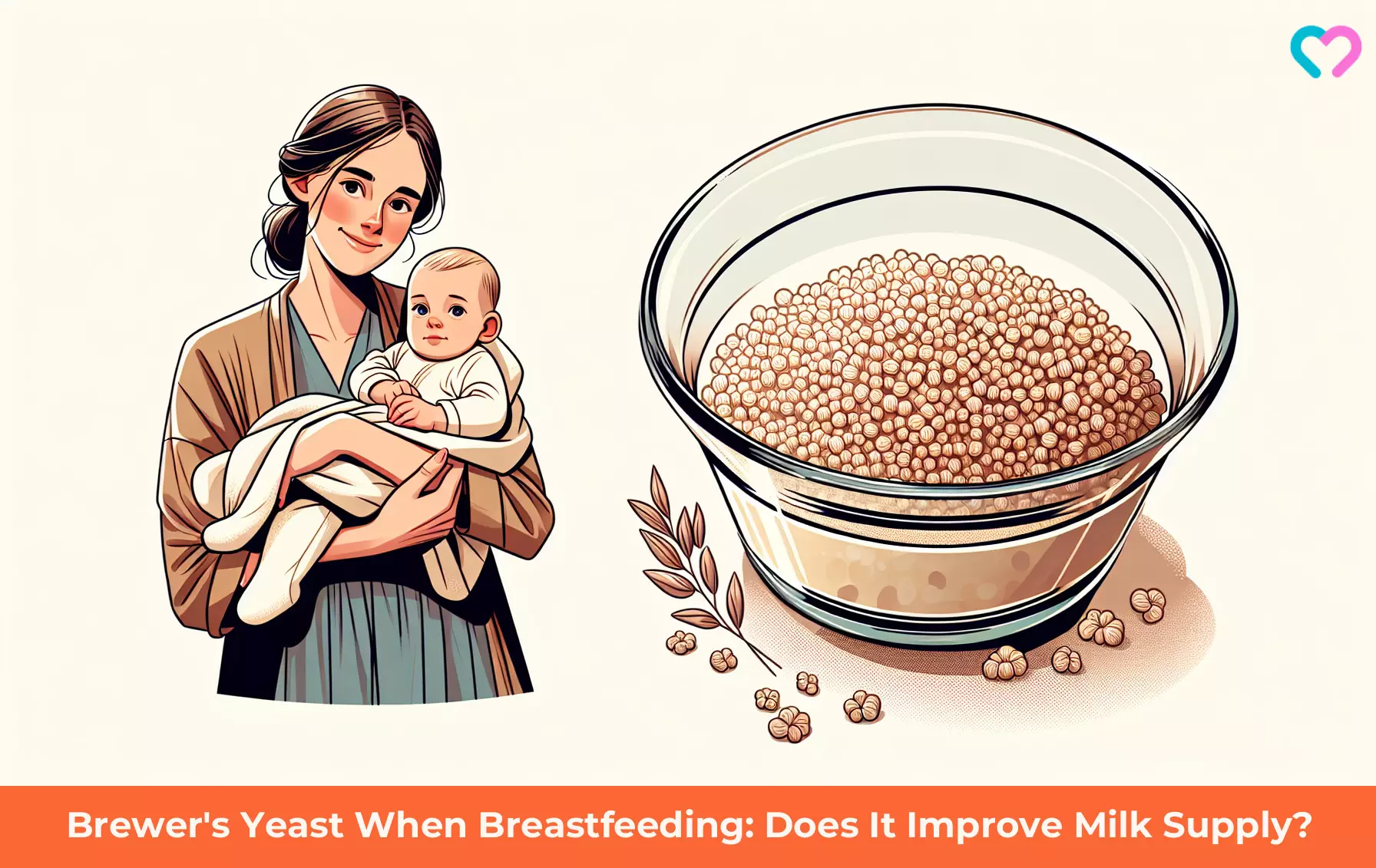
Image: Dalle.E/MomJunction Design Team
References
1. Brewer’s Yeast; URMC Encyclopedia
2. Forinash AB et al.; The use of galactogogues in the breastfeeding mother; Ann Pharmacother. (2012)
3. Brewer’s Yeast – How it works?; Kaiser Foundation Health Plan of Washington
4. Gene Bruno; Nutritional Yeast & Liver; Huntington College of Health Sciences
5. 5 Breastfeeding Diet Myths; Johns Hopkins Medicine
6. Gene Bruno; Brewer’s Yeast; National Library of Medicine
7. Chromium; Kaiser Foundation Health Plan of Washington
Community Experiences
Join the conversation and become a part of our nurturing community! Share your stories, experiences, and insights to connect with fellow parents.
Read full bio of Briana Violand
Read full bio of Rohit Garoo
Read full bio of Dr. Ritika Shah
Read full bio of Anindita Ghatak








